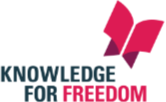Washington University at St. Louis
Citizenship and Freedom: From Plato to Maya
Summer 2021
History, as nearly no one seems to know, is not merely something to be read. And it does not refer merely, or even principally, to the past. On the contrary, the great force of history comes from the fact that we carry it within us, are unconsciously controlled by it in many ways, and history is literally present in all that we do. It could scarcely be otherwise, since it is to history that we owe our frames of reference, our identities, and our aspirations.
—James Baldwin, Ebony, 1965
- Day 1: Introduction
- Day 2: What is the Aim of Education?
- Plato, “The Allegory of the Cave”
- James Baldwin, “A Talk with Teachers,”
- Day 1: The Subject of Politics
- Aristotle, Politics, Selections
- Day 2: The Political Subject
- Thomas Hobbes, The Leviathan, Book 1
- Day 1: The Liberal State and Citizenship
- Thomas Jefferson, “Declaration of Independence”
- Constitution of the United States of America
- Day 2
- Frederick Douglass, “What to the Slave is the Fourth of July?”
- Randolph Bourne, “Trans-National America,”
- Day 1
- King, “Letter from a Birmingham Jail,”
- Day 2
- Sojourner Truth, “Ain’t I a Woman?”
- Maya Angelou, I Know Why the Cage Bird Sings, Selections
